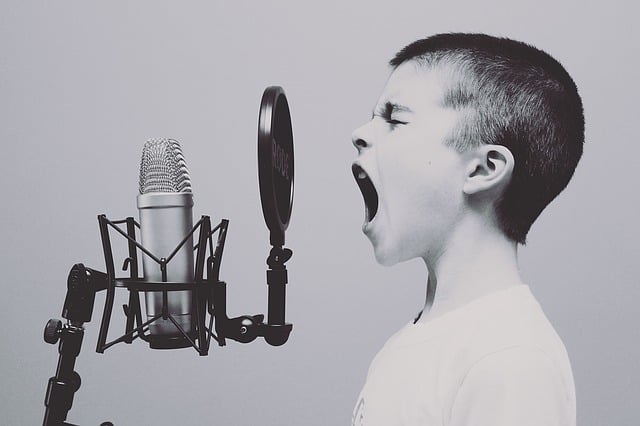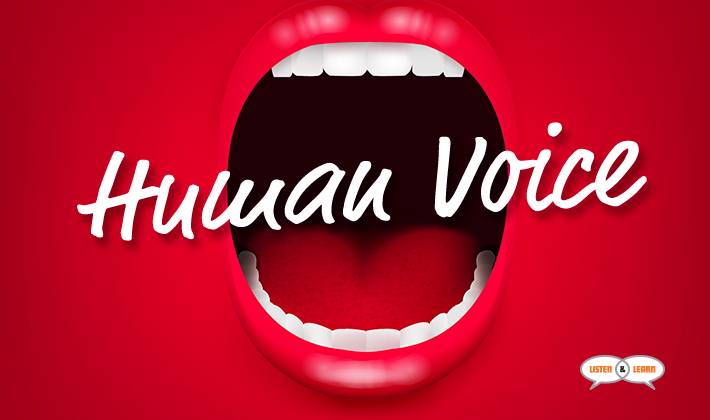The Human Voice as an Instrument for Language
There must have been a time before homo-sapiens developed when communicated languages were nothing more than grunts, howls, utterances and octave-shifting yodels were used, much like our primate cousins do now. Following evolution, through time those sounds would later transform into language and, naturally, song, or could it have been the other way around?
Long before we were banging rhythmically on fallen tree trunks or clacking stones together to drop a beat we must have been howling at the moon, maybe randomly at first, but somewhere along the way in a kind of syncopated formation. As that sound carried, distant tribes might have joined from the low branches of trees on the Savanna or at cave mouths where our troglodyte ancestors slept in piles, and so it may have begun the first human choral performances, performed for no other reason than the visceral joy it gave their developing brains. Explore with us just how important your voice is and maybe pick up some language learning tips along the way!
Photo via Pixabay
Music is visceral
From the very beginning, song was an important part of our tribes. Singing would have been a way to pass on knowledge, tell stories and worship the things that we took as Gods and monsters. Singing would have bred accompanying rhythms and beats which would have given birth to the first instruments to create the most primitive music. Music is a visceral form of expression that has the power to affect emotion and create desire.
Today, at this point in that evolution, at least in the West, the importance of the voice seems diminished in popular music by guitar riffs and auto-tune, barely holding a tune. In a time when audiences are more interested in whether the singer has the right body or six-pack to bicep ratio, the voice is buried beneath layers of overdub.
Beyond music as an industry, we as people are rarely involved in singing. When does the average person going about their normal everyday life take up song? Maybe in the shower? We listen to or hear music almost all the time, but for most of us, singing is reserved for special occasions and done to satisfy a tradition: Christmas carols, church choir or that droning ‘Happy Birthday’ song that has spread the world over.

Photo via Pixabay
The human voice
The human voice is a dynamic instrument. It’s also the very first musical instrument that ever existed on Earth. Its ability to articulate, communicate ideas, create beautiful melodies and translate human emotion into sounds is unmatched in the animal kingdom, as far as we know.
The sound of each individual’s voice is entirely unique. Its uniqueness is due to the actual shape and size of an individual’s vocal cords as well as the size and shape of the rest of that person’s body, especially the chest and vocal tract.
Children learn to use all of these actions consistently during speech development. They learn to speak the difference between utterances by listening to and imitating the voices of the adults around them. They mimic these voices playfully because they are so different from their own.
In an interview, Art Garfunkel spoke about voice training and maintenance. He, one of the greatest voices to come from the folk rock era, explained that the voice, like any instrument, needs constant tuning and practice. No one is born with glorious pipes. Singing is hard work that involves dedication and training like playing the cello or blowing a trumpet.
Singing is linked to learning in early development, but why should it end when we are six? Learning songs is a great tool for all ages when learning a new language. It expands vocabulary and lends itself to memorisation with rhyming schemes. We all remember the songs we learned in school even if we have forgotten how to solve for X or the country capitals. Belting out a tune may result in some disparaging looks, but it can make you feel better, boost your memory and perhaps connect you to your inner primate. Go ahead, give it a shot.



